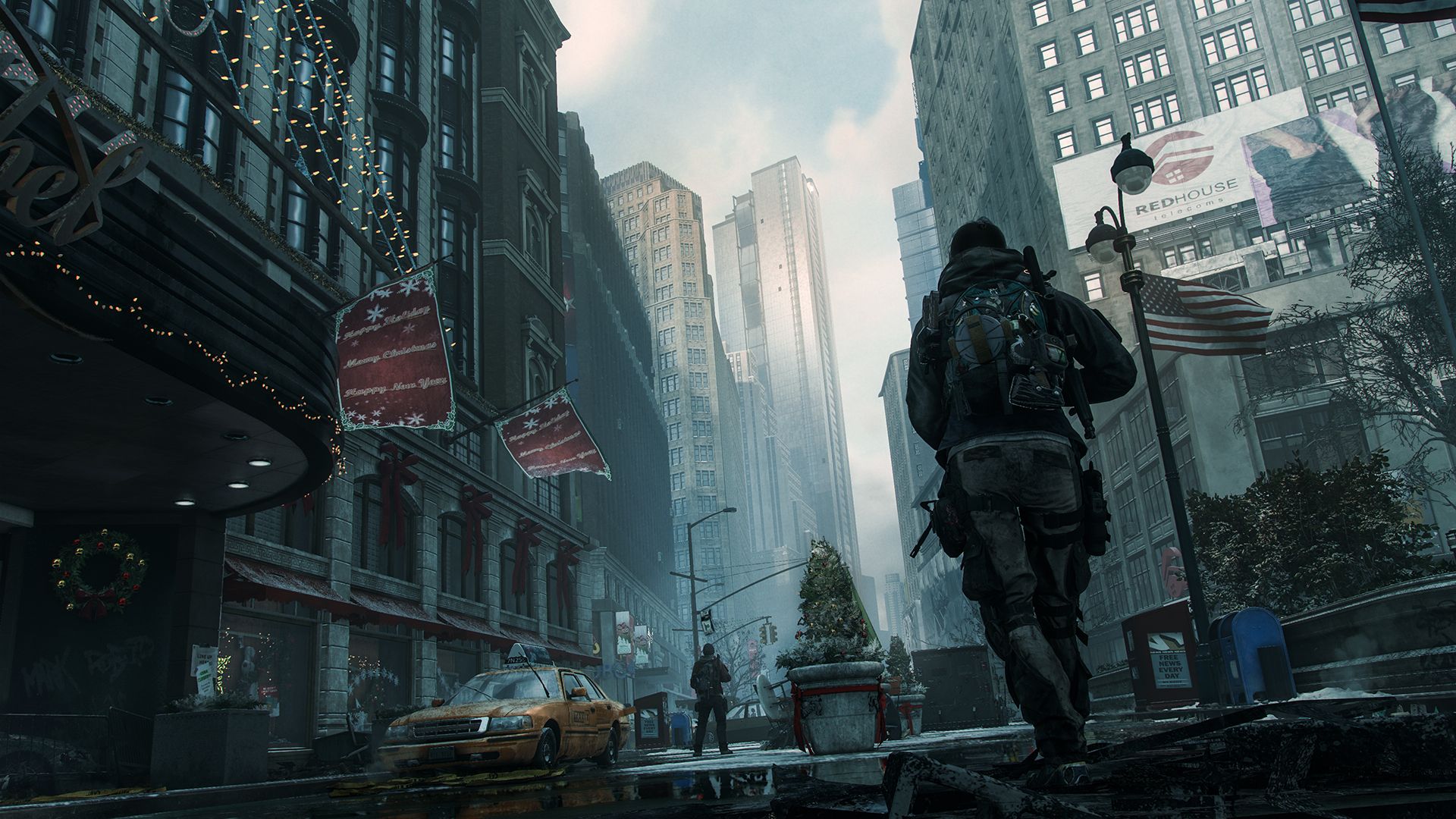
If there were a lecture aiming to analyze Tom Clancy's The Division, a starting point might be that famous New Yorker cover of Manhattan at the center of the universe: Anything beyond the Hudson River or East River is a faraway, unknown world utterly irrelevant to what's happening in the city.
That jarring realization hits in the first 10 minutes of the game, as the unnamed protagonist—a member of a highly skilled militia group called the Division that has been deployed to save New York City from itself during a winter pandemic—begins to make his way from Brooklyn to Manhattan. The city feels monumental, perhaps even bigger than in real life, thanks in part to the desolate streets and focus on architectural details.
For those fascinated with New York City, The Division is the perfect video game to wander the streets and gun down thugs, criminals and flame-thrower-wielding madmen called the Cleaners. Unlike most role-playing games, though, The Division makes it hard to turn off the brain. No matter how fictional, it is a Tom Clancy video game, after all, and a political imagination of a certain conservative mindset is in its DNA from the start.
When I was shooting down the bad guys in a review of The Division's beta version, I hoped that Ubisoft would disclose much more about the motivations and the organizations of the hostiles. My hopes were partially met. There is more information about the hooded villains and what motivates them to be hostile to the civilization they grew up under. It's a bit too much social Darwinism—with the pandemic being a human-made virus created by a scientist that preaches survival of the fittest—for my taste, but at least the logic is consistent and plot is adequately tied up in the end.
But there's another group at work in the city beyond the game's villains—the ragtag groups of criminals who steal to survive, and who you also gun down with impunity. For a game that intuitively heralds the Division members as saviors of the city, there is a dissonant divide in empathy given out. As the review from The Guardian reads, "caring for people is a really difficult design problem."
If you can overlook the politics of it all, then I have news for you: It's a very fun game to play. According to game developer Martin Hultberg, Ubisoft "tried to keep the film sequences to an absolute minimum" to create a more immersive experience—and it shows. The game flows almost seamlessly on all of the virtual New York City streets and alleyways. While shootouts can get repetitive by the end, mainly because the majority of the AI villains can be pretty dumb, it does get the blood flowing.
And the game has the "Dark Zone," which needs to be commended. If The Division will make a mark in pushing the envelope for future video games, it's the Dark Zone. Opening up in the middle of the game—you have to reach level 30 to get invited to go in the Dark Zone—around Midtown Manhattan, the free-for-all area with looting and shooting galore is a fascinating dive in human psychology on how gamers will make fragile alliances and what may drive others to stab their peers in the back.
But even getting to the Dark Zone was an immense pain for me personally because the servers kept cutting out on me during the mandatory multiplayer missions to level up. While I'm not sure how much Ubisoft servers or my Wi-Fi connection (in the Bay Area, which weathered pouring rain all week, mind you) was responsible for Delta 20000984 error, it was a common enough problem shared in the forums to lead Ubisoft to take a hard look. At one point, I was close to calling it quits with the game because of the server failures.
I do not have a big appetite for shooter games, but The Division satisfied most of my thirst for killing baddies on kick-ass aesthetics. But it falls short of fulfillment because of its loose and fast interpretation of urban politics and social psychology, leaving a bad aftertaste. New Yorkers in the game—like New Yorkers and non–New Yorkers in real life—may be political animals. But as the unnamed protagonist in the Division wandering the cavernous streets of Manhattan, I was more an animal playing politics.
Uncommon Knowledge
Newsweek is committed to challenging conventional wisdom and finding connections in the search for common ground.
Newsweek is committed to challenging conventional wisdom and finding connections in the search for common ground.
About the writer
Seung Lee is a San Francisco-based staff writer at Newsweek, who focuses on consumer technology. He has previously worked at the ... Read more
To read how Newsweek uses AI as a newsroom tool, Click here.








